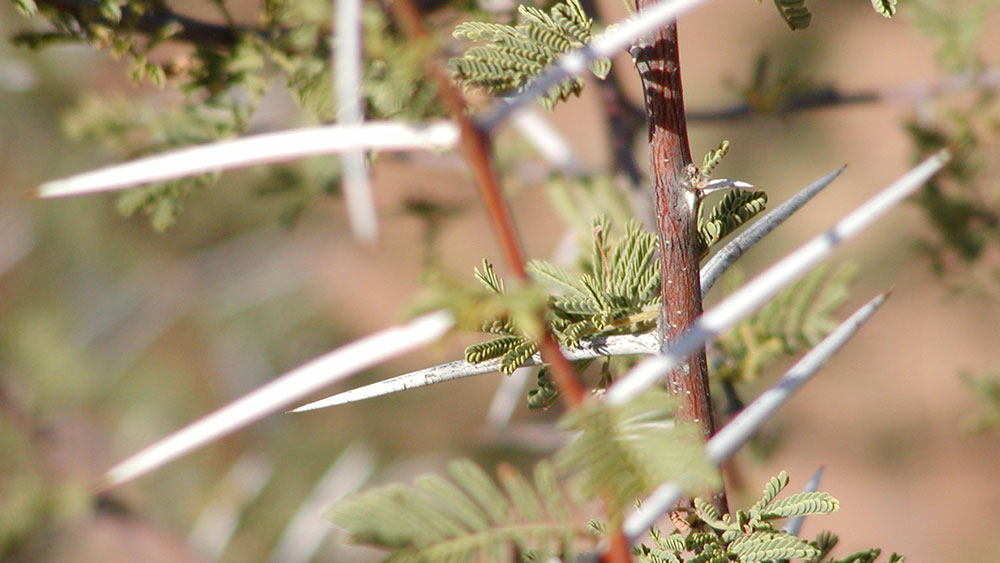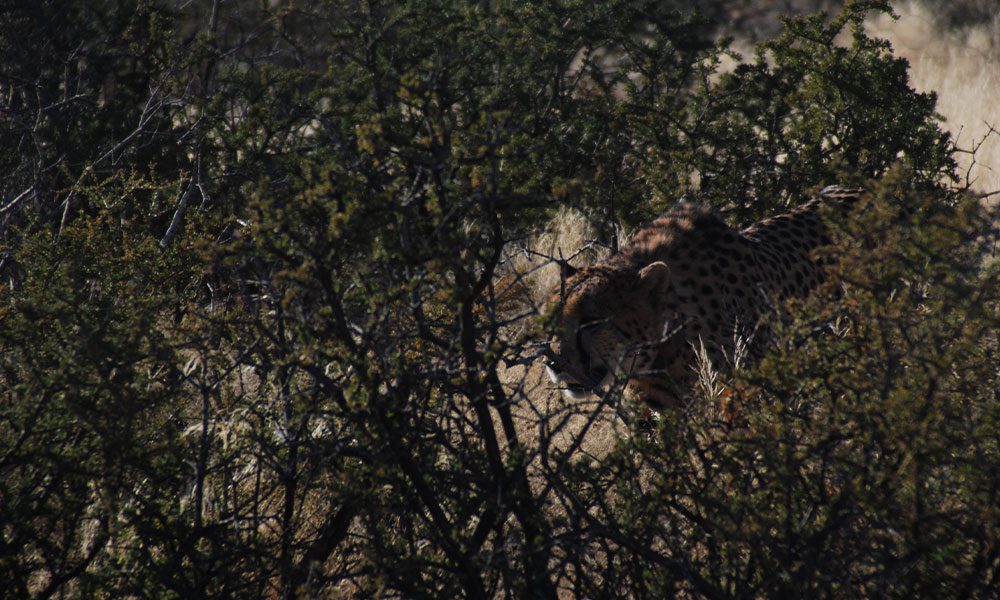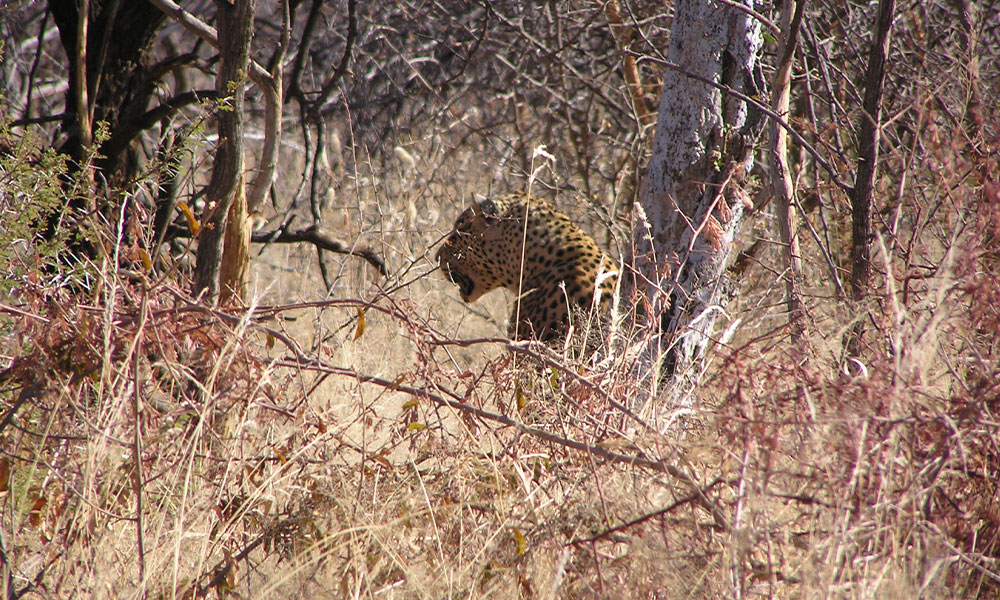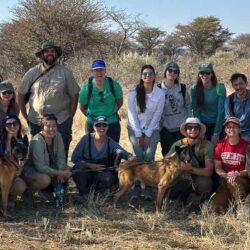Thornbush Density Impacts Hunting Success of Cheetah and Leopard
-

- by Brandy Morenko Campbell May 18, 2023

Article Summary: Rewilding Apex Predators Has Effects on Lower Trophic Levels: Cheetahs and Ungulates in a Woodland Savanna
Authors: Dallas B. Ruble, Stijn Verschueren, Bogdan Cristescu, Laurie L. Marker
Encroachment of woody vegetation has transformed arid and semi-arid grasslands into homogenous shrubland, yet its effect on predator-prey interactions is largely unknown. To evaluate how bush encroachment impacts the hunting success of African large carnivores, camera-trap photographs of leopard and cheetah abdomens, were compared to the presence of woody thorn bush vegetation. Satellite-derived Synthetic Aperture Radar data provided researchers with land surface information that can be used to determine vegetation cover. This data was evaluated against 7 years of camera trap images in north-central Namibia, where abdomen size presented a measure of hunting success and was determined using angle measurements formed by lines drawn from the scapula, elbow, and tail base, on side-view pictures of leopards and cheetahs.


Leopards were shown to be more successful predators in intermediate woody cover in the dry season, while cheetahs were in the wet season. It’s suspected that cheetahs likely benefit from the increased openness of the landscape, where plenty of habitat margins aid in visualizing and stalking prey. The leopard, as an ambush predator, can take advantage of the increased bush cover which allows for more stalking opportunities. These hunting preferences and different hunting methods highlight that a mixed landscape of low, intermediate, and high bush cover offers hunting opportunities for both species and indicates that leopards cope better with bush encroachment than cheetahs.
A cover of around 25-30% is estimated to be a balanced landscape that would support both the leopard and the cheetah. This new information can be used to develop conservation landscape management plans for these species and used in future studies to compare differences that may exist across geographic regions.
Related Reading
-
August 27, 2025
Sniffing Out Stories with the Scat Detection Dog Team




